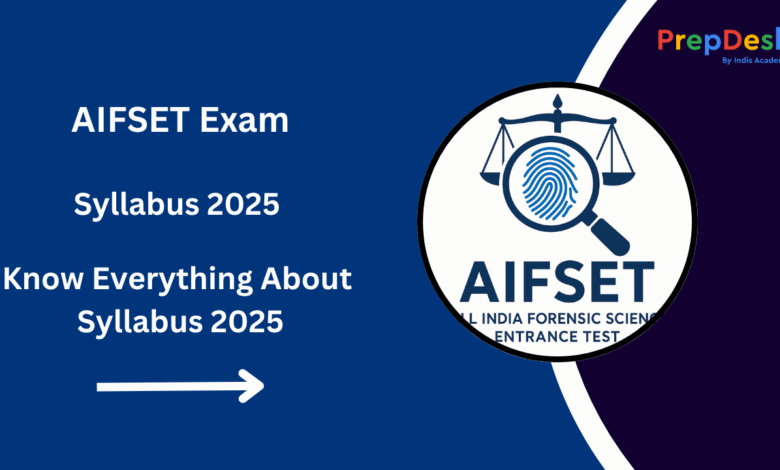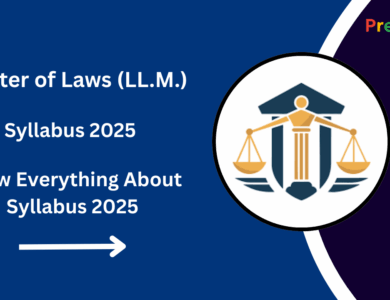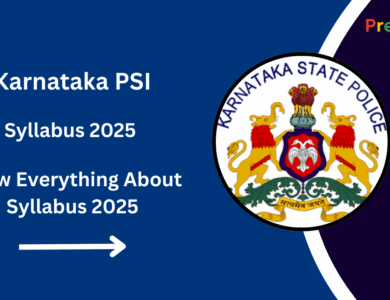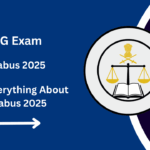AIFSET 2025 Syllabus & Exam Pattern | B.Sc & M.Sc Forensic Science PDF
Explore the complete AIFSET Syllabus 2025 for B.Sc and M.Sc Forensic Science courses. Get detailed subject-wise topics, exam pattern, marks distribution, preparation tips, and download the official syllabus PDF to boost your exam readiness and score higher.

The All India Forensic Science Entrance Test (AIFSET) is a prestigious national-level entrance exam conducted for admission into undergraduate and postgraduate courses in forensic science and allied fields across India. The exam acts as a gateway for students aspiring to build a career in forensic science, criminal investigation, cyber forensics, and related disciplines.
The AIFSET 2025 syllabus is designed to test the candidates’ fundamental knowledge in science, analytical thinking, and practical application relevant to forensic studies. Understanding the syllabus thoroughly is crucial for effective preparation and scoring well in the exam.
Exam Overview
| Parameter | Details |
|---|---|
| Exam Name | All India Forensic Science Entrance Test (AIFSET) 2025 |
| Level | National |
| Mode | Online (Computer-Based Test) |
| Duration | 2 Hours |
| Total Marks | 100 |
| Type of Questions | Multiple Choice Questions (MCQs) |
| Exam Frequency | Once a year |
| Eligibility | 10+2 or equivalent for UG, Bachelor’s Degree for PG |
| Official Website | aifset.in |
Syllabus Breakdown by Semester and Subject
The AIFSET syllabus broadly aligns with forensic science undergraduate and postgraduate courses, covering foundational science subjects and specialized forensic topics. Below is a detailed semester-wise structure including topics, marks distribution, and brief descriptions.
Semester 1: Basic Sciences and Introduction to Forensics
| Subject | Topics | Marks | Description |
|---|---|---|---|
| Physics | Mechanics, Thermodynamics, Optics | 15 | Fundamental physics concepts applicable in crime scene analysis and evidence examination. |
| Chemistry | Organic, Inorganic, Physical Chemistry | 15 | Basics of chemical reactions, analysis techniques for substances found in forensics. |
| Biology | Cell Biology, Genetics, Microbiology | 15 | Understanding biological evidence, DNA profiling, and microbial forensics. |
| Introduction to Forensic Science | History, Scope, Branches of Forensics | 10 | Overview of forensic science, its evolution, and key branches such as forensic chemistry, biology, etc. |
Semester 2: Applied Sciences and Crime Scene Investigation
| Subject | Topics | Marks | Description |
|---|---|---|---|
| Analytical Chemistry | Chromatography, Spectroscopy | 15 | Techniques for analyzing physical and chemical evidence. |
| Forensic Biology | Serology, DNA Fingerprinting | 15 | Study of biological fluids and genetic identification. |
| Crime Scene Investigation | Evidence Collection, Preservation, Documentation | 15 | Procedures for securing and analyzing crime scenes. |
| Forensic Anthropology | Human Skeleton Analysis, Identification | 10 | Techniques to identify human remains. |
Semester 3: Forensic Techniques and Legal Aspects
| Subject | Topics | Marks | Description |
|---|---|---|---|
| Forensic Toxicology | Poisons, Drug Analysis, Toxic Agents | 15 | Study of harmful substances and their detection. |
| Forensic Psychology | Criminal Behavior, Profiling | 10 | Psychological evaluation of suspects and victims. |
| Legal Procedures | Criminal Law, Evidence Law | 15 | Basics of laws relevant to forensic evidence and court proceedings. |
| Digital Forensics | Cybercrime, Data Recovery | 10 | Investigation of cyber offenses and digital evidence handling. |
Semester 4: Advanced Forensics and Specializations
| Subject | Topics | Marks | Description |
|---|---|---|---|
| Forensic Ballistics | Firearms, Bullet Analysis | 15 | Examination of weapons and ballistics evidence. |
| Forensic Odontology | Dental Identification | 10 | Use of dental records for identification in forensic cases. |
| Forensic Document Examination | Handwriting Analysis, Forgery Detection | 10 | Techniques to detect fraudulent documents. |
| Forensic Chemistry | Drug Analysis, Trace Evidence | 15 | Advanced chemical analysis of forensic samples. |
Detailed Topics Description
Physics in Forensics
- Mechanics: Understanding force, motion which can help in reconstructing crime scenes.
- Thermodynamics: Heat transfer in forensic investigations.
- Optics: Use of microscopes and optical instruments in evidence analysis.
Chemistry in Forensics
- Organic Chemistry: Study of carbon compounds in toxicology.
- Inorganic Chemistry: Metal detection and analysis.
- Physical Chemistry: Chemical kinetics relevant to decomposition rates.
Biology in Forensics
- Cell Biology: Forensic DNA analysis at the cellular level.
- Genetics: Understanding inheritance patterns for identification.
- Microbiology: Identifying microorganisms in biological samples.
Crime Scene Investigation
- Methods of collecting physical evidence without contamination.
- Documentation and chain of custody maintenance.
Legal Procedures
- Fundamentals of Indian Penal Code (IPC) relating to forensic evidence.
- Rules of evidence admissibility in courts.
Marks Distribution Overview
| Semester | Total Marks |
|---|---|
| Semester 1 | 55 |
| Semester 2 | 55 |
| Semester 3 | 50 |
| Semester 4 | 50 |
| Total | 210 (Approximate) |
Download AIFSET 2025 Syllabus PDF
You can download the complete detailed syllabus PDF for AIFSET 2025 from the official link below:
Download AIFSET 2025 Syllabus PDF
Recommended Books for AIFSET Preparation
| Subject | Book Title | Author(s) | Publisher |
|---|---|---|---|
| Physics | Concepts of Physics | H.C. Verma | Bharati Bhawan |
| Chemistry | Organic Chemistry | Morrison & Boyd | Pearson |
| Biology | Biology: The Unity and Diversity of Life | Cecie Starr | Cengage |
| Forensic Science Basics | Introduction to Forensic Science and Criminalistics | Richard Saferstein | Pearson |
| Forensic Toxicology | Forensic Toxicology: Mechanisms and Pathology | V.V. Pillay | Elsevier |
| Crime Scene Investigation | Practical Crime Scene Processing and Investigation | Ross M. Gardner | CRC Press |
| Digital Forensics | Guide to Computer Forensics and Investigations | Bill Nelson | Cengage |
| Legal Aspects | Indian Penal Code and Criminal Procedure Code | Relevant Government Publications | N/A |
Preparation Tips for AIFSET 2025
- Understand the syllabus thoroughly – Break down topics semester-wise.
- Create a study schedule – Allocate more time to difficult subjects like forensic chemistry and toxicology.
- Practice MCQs daily – Focus on previous years’ question papers.
- Refer to recommended books and notes – Use authentic study material.
- Join coaching or online test series – For guidance and regular self-assessment.
- Stay updated on forensic science advancements – Read journals and articles.
- Focus on practical applications – Visualize crime scene investigations and lab techniques.
Specializations within Forensic Science
Upon clearing AIFSET and pursuing forensic science, students can specialize in various domains:
- Forensic Chemistry
- Forensic Biology
- Forensic Toxicology
- Forensic Anthropology
- Digital Forensics
- Forensic Psychology
- Forensic Ballistics
- Forensic Document Examination
Specializations often influence career paths, ranging from lab analyst roles, crime scene investigator, cyber forensic expert, to forensic psychologist.
Conclusion
The AIFSET 2025 syllabus encompasses a diverse and comprehensive range of topics that lay the foundation for a successful career in forensic science. Detailed knowledge of each subject, along with a strategic preparation plan, is essential to excel in this competitive exam. With the right resources and consistent effort, aspirants can master the syllabus and step confidently into the forensic science profession.
Important FAQs about AIFSET Syllabus 2025
| Question | Answer |
|---|---|
| What is the mode of the AIFSET exam? | The exam is conducted online (computer-based test). |
| How many subjects are included in the syllabus? | The syllabus broadly covers 4-5 core subjects each semester. |
| Are practicals part of the exam syllabus? | Mostly theory-based MCQs, but practical knowledge is useful. |
| Where can I download the official syllabus PDF? | The syllabus PDF is available on the official website aifset.in. |
| Is there negative marking in the exam? | Typically, no negative marking but confirm from official notification. |
| Can I get specialization details before admission? | Yes, specializations are usually offered after first-year completion. |





